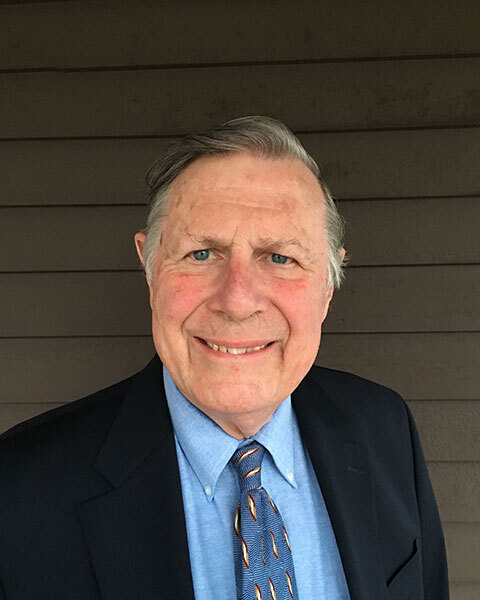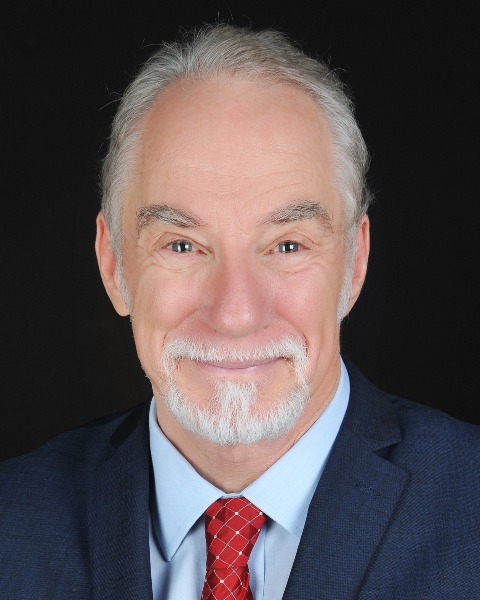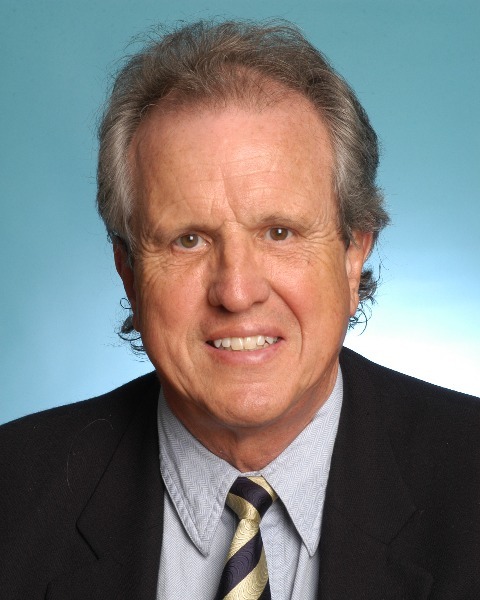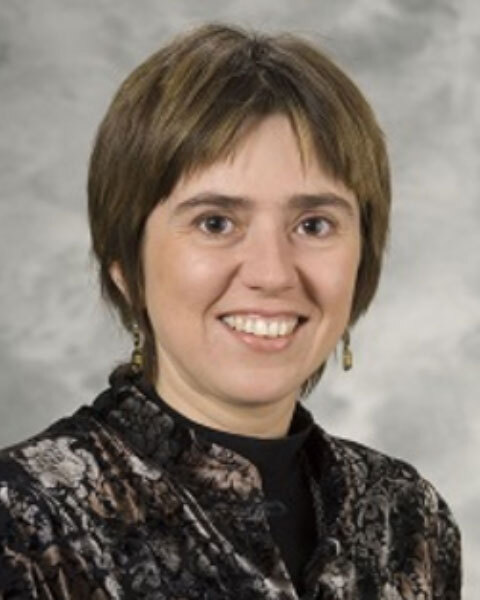
Cannabis: New Findings, ASAM'S New Policy Statement and New Approaches
-
Register
- Non-Member - $39
- Regular Member - $29
- Retired - $29
- Early Career Physician - $29
- Resident - $19
- Student - $19
- Associate - $19
- ASAM Staff - Free!
- International Member - $29
- Emeritus Member - $29
- Provisional Member - $29
- Fellow Member - $29
- Honorary Member - $29
- CRT Member - $29

Cannabis: New Findings, ASAM'S New Policy Statement and New Approaches
Recorded: Thursday, April 22, 2021 - Saturday, April 24, 2021
On-Demand Session
Overview
This 1-hour on-demand session from ASAM Virtual 2021 addresses ASAM's new cannabis policy supported by medical research and public health guidelines rather than by a criminal justice centered approach.
ASAM’S new Cannabis Policy is supported by controlled medical research and public health guidelines rather than by a criminal justice-centered approach. This session will help attendees understand the ASAM cannabis policy, so that it can be used in discussions with legislative leaders in their states. Also, members of the writing committee will give brief updates on cannabis and psychiatric illness, cannabis use disorder and pregnancy. Public health approaches to decriminalization and legalization of cannabis will be discussed as a preferred option to commercialization. The presentation will focus on how the ASAM policy is a useful tool for engaging in evidence-based discussions with colleagues, patients, lawmakers and others about cannabis use and maximizing patient and public health safety.
The target audience for this intermediate level session includes physicians, nurse practitioners, physician assistants, other clinicians, researchers, residents, fellows, students, and counselors.
This session addresses the following ACGME Competencies: Patient Care, Medical Knowledge, Interpersonal Skills.
Learning Objectives
Upon completion, learners will be able to:
- Be aware of new research relating to cannabis, including cannabis effects on mental illness, addiction, cardiopulmonary disease and pregnancy outcomes.
- Make use of ASAM’s Cannabis policy to advocate for evidence-based approach to cannabis-related policies in discussions with legislative leaders
- Use ASAM's new policy statement on cannabis as a way to help their patients evaluate and mitigate the risk of their use of cannabis
Fees
| Rate Description | Rate |
| ASAM Member | $29 |
| Non-Member | $39 |
| Associate Member | $19 |
| Resident Member* | $19 |
| Student Member* | $19 |
*Residents, Fellows-in-training, Interns, and Students must join ASAM to receive a discounted registration rate. Click here to become an ASAM member. National and Chapter membership dues apply. There is no charge for Students to become a Member, but verification of student status is required.
Membership Question? Call ASAM at 1.301.656.3920, email us, or view the ASAM website for more information.
Refunds & Cancellations
All ASAM e-Learning Center refund requests must be made in writing to education@asam.org within 90 days of purchase. Those requesting refunds for courses that are in progress will receive partial refunds or e-Learning Center credit. Automatic full refunds will be made for any course with a live-course component that has been cancelled.
Registration Deadline: 04/30/2024
Course Instructions
- Click the "Contents" tab and select "View On-Demand Recording". After viewing the entire video, return to the Contents tab.
- Click "Complete Post Test" to answer quiz questions. You will have 10 attempts and must get at least 2 out of 3 questions correct. After completing the quiz, return to the Contents tab.
- Click "Complete Evaluation" to answer evaluation questions. Scroll down on all questions, there are answers that expand past the size of the window.
- Click the button “Claim Credits” in the box titled “Claim Credits & Certificate." Choose the type of credit and click submit. Click the button “View/Print Certificate” to save or print your certificate. If you ever lose your certificate, you can come back to the ASAM e-Learning Center and view it on your transcript (found in the Dashboard).
Need Assistance?
If you have are experiencing any log in issues, cannot access a course, need assistance claiming credit, or have other questions or concerns, please e-mail Education@asam.org for assistance.
For learners who may have difficulty typing, moving a mouse or reading, Essential Accessibility is an application available for use to assist.

Norman Wetterau
MD, DFASAM, FAAFP
Norman Wetterau, MD, DFASAM, FAAFP has been a rural family physician for 40 years He has always addressed addiction, help start a outpatient treatment program in the 1980s, which now has many offices and has promoted addiction treatment by family physicians. He helped organize the addiction interest group in the Society of Teachers of Family Medicine. He is a clinical associate professor of family medicine at the University of Rochester School of Medicine and helped get the family medicine residences and many rural physicians certified in buprenorphine.
He is past president of NYSAM, and past chapter co-chair and board member of ASAM. As an ASAM board member, he helped get prevention into ASAM’s strategic plan. He also teaches a class at a local seminary where he has clergy examine how their church can can become involved in justice issues. He was chosen as NY State family physician of the year and NY State rural physician of the year, mainly due to his efforts to prevent and treat substance use disorders. His favorite things to talk about are policy and prevention.

Jeffery Wilkins
MD, DFAPA, DFASAM
Jeffery N. Wilkins, M.D., DFAPA, DFASAM, is the Lincy/Heyward-Moynihan Endowed Inaugural Chair in Addiction Medicine, Department of Psychiatry, Cedars-Sinai Medical Center. Dr. Wilkins received his undergraduate degree from University of Notre Dame, his MD from University of California, San Diego, and his psychiatric training at UCLA - followed by a Career Development award from the Veterans Administration. Dr. Wilkins has served on the Board of Directors of the American Society of Addiction Medicine, the Brent Shapiro Foundation for Drug Awareness, and MATRIX. He previously served as the President of the California Society of Addiction Medicine, Board member of the American Board of Addiction Medicine, and Board Chair of the Psychological Trauma Center. Dr. Wilkins was founding Senior Editor of Military Behavioral Health that published special issues on risk factors for returning veterans, intimate partner violence, and the behavioral health of children in military families. Dr. Wilkins founded, and served as Program Director of the ACGME fellowship in Addiction Psychiatry at CSMC for 14 years, graduating 18 fellows. Dr. Wilkins assisted in securing Congressional and Senate funding for housing and treatment for homeless veterans. His clinical research studies have received funding from the National Institute on Drug Abuse, the National Institute of Mental Health and the Veterans Administration.
Dr. Wilkins has written 25 chapters and over 70 articles for numerous peer-reviewed publications including the New England Journal of Medicine, Archives of General Psychiatry, American Journal of Psychiatry, Biological Psychiatry, Psychoneuroendocrinology, and the Journal of Drug and Alcohol Dependence; his publications have received over 3,789 citations.

David Smith
MD, FASAM, FAACT
David E. Smith, MD, FASAM, FAACT Diplomate, American Board of Addiction Medicine Dr. Smith is recognized as a national leader in the areas of the treatment of addictive disease, the psychopharmacology of drugs, new research strategies in the management of drug abuse problems, and proper prescribing practices for physicians. He is the Founder of the Haight-Ashbury Free Clinics in San Francisco, merged with Walden House in mid-2011 to form HealthRIGHT 360. Dr. Smith is currently the Medical Director for Center Point, a 6-month residential therapeutic community in San Rafael, CA, which provides comprehensive, integrated services to at-risk individuals and families. He also serves as Medical Director for both Avery Lane Treatment Program for Women and for Muir Wood Adolescent Treatment Program. Dr. Smith has also served as Adjunct Professor at the University of California, San Francisco; Medical Director of the California State Department of Alcohol and Drug Programs; and Medical Director of the California Collaborative Center for Substance Abuse Policy Research. He is a Fellow and Past President of the American Society of Addiction Medicine and of the California Society of Addiction Medicine. He is the recipient of numerous awards and honors.
Dr. Smith is the Founding Editor of the Journal of Psychoactive Drugs and an Editorial Board member of the Journal of Addiction Medicine. In addition, he has authored or co-authored 26 books, including Unchain Your Brain, has written over 350 journal articles, and has been the technical consultant for 28 drug abuse-related films. He is currently working on his autobiography from the Summer of Love to today.

Aleksandra E. Zgierska
MD, PhD, DFASAM
Aleksandra Zgierska, MD, PhD, DFASAM is a tenured Professor and Vice-Chair of Research at the Pennsylvania State University, College of Medicine, Department of Family and Community Medicine. She is board-certified in family medicine and addiction medicine (American Board of Preventive Medicine) and provides both primary and addiction care. She has focused her career on advancing practice, research, education and advocacy in addiction medicine. Her educational efforts and robust federally-funded research portfolio focus on the prevention and treatment of addiction, especially when it involves opioids, and on improving outcomes in chronic pain.
Dr. Zgierska is a Distinguished Fellow of the ASAM and serves as Co-Chair for the ASAM’s Chapters’ Council and member of the ASAM Board of Directors. She has served on numerous local, state and national task forces, committees and workgroups, participating in the development of professional guidelines and policies, and advocating for aligning legislative efforts with evidence-based approach to addiction and pain care.

Jeffery A. Selzer
MD, FASAM
Jeffrey Selzer, MD, FASAM has been Medical Director of Committee for Physician Health, New York State's physician health program, since 2008. Dr. Selzer is also Director of Physicians' Resource Network, a confidential counseling service for medical staff members of the North Shore- Long Island Jewish Health System. Prior to taking on these roles, Dr. Selzer was the Director of Addiction Treatment Services for the North Shore- Long Island Jewish Health System and Medical Director of Zucker Hillside Hospital. He attended medical school at the University of Michigan and completed a psychiatric residency at the University of California at Los Angeles. Dr. Selzer has faculty appointments as an associate professor at the Hofstra North Shore – LIJ and Albert Einstein Medical Schools where he teaches both medical students and residents. He has participated in addiction medicine research as a member of protocol development teams, site principle investigator, and as the author of research publications. He is an Editorial Board Member of the Journal of Substance Abuse Treatment and is a reviewer for the Journal of Addiction Medicine. Pertinent to today's presentation, he is an editor with Nunes, Levounis, and Davies of Substance Dependence and Co-Occurring Psychiatric Disorders: Best Practices for Diagnosis and Treatment, published by Civic Research Institute in 2010. Dr. Selzer has served in the governance of a number of organizations with important roles in addiction medicine. He served on the Executive Committee for the National Institute on Drug Abuse Clinical Trials Network. He has served as a Board Member of the Federation of State Physician Health Programs and is currently Co-Chair of the Federation's Research Committee. In 2013, Dr. Selzer was elected to the Board of the American Society of Addiction Medicine as Region 1 Director.
CME, CE, CEU and Other Credit Types

ACCME Accreditation Statement
The American Society of Addiction Medicine is accredited by the Accreditation Council for Continuing Medical Education (ACCME) to provide continuing medical education for physicians.
AMA Credit Designation Statement
The American Society of Addiction Medicine designates this enduring material for a maximum of 1 AMA PRA Category 1 Credits™. Physicians should claim only the credit commensurate with the extent of their participation in the activity.
American Academy of Physician Assistants
This activity has been reviewed by the AAPA Review Panel and is compliant with AAPA CME Criteria. This activity is designated for 1 AAPA Category 1 CME credits. Approval is valid from 5/26/2021 to 5/26/2022. PAs should only claim credit commensurate with the extent of their participation. AAPA reference number: CME-202755.
NAADAC, the Association for Addiction Professionals
This activity has been approved by the American Society of Addiction Medicine, as a NAADAC Approved Education Provider, for educational credits. NAADAC Provider #295, ASAM is responsible for all aspects of the programming.
California Association for Drug/Alcohol Educators (CAADE)
This educational program is approved by CAADE: #CP40 999 1222.
California Association of DUI Treatment Centers (CADTP)
This educational program is approved by CADTP: #205.
California Consortium of Addiction Programs and Professionals (CCAPP)
This educational program is approved by CCAPP: #OS-20-330-1222.
Continuing Education Credits (CEUs)
Non-physician participants will receive a certificate of attendance upon completion of the activity and an online evaluation confirming their participation. Participants should submit his/her certificate of attendance to their professional organization/institute.
Maintenance of Certification (MOC) or Continuing Certification Programs (CCP)
American Board of Medical Specialties (ABMS)
Through the American Board of Medical Specialties (“ABMS”) ongoing commitment to increase access to practice relevant Continuing Certification Activities through the ABMS Continuing Certification Directory, The ASAM Virtual.2021 has met the requirements as a MOC Part II CME Activity (apply toward general CME requirement) for the following ABMS Member Boards: Allergy and Immunology, Anesthesiology, Colon and Rectal Surgery, Family Medicine, Medical Genetics and Genomics, Nuclear Medicine, Physical Medicine and Rehabilitation, Plastic Surgery, Preventive Medicine, Psychiatry and Neurology, Radiology, Thoracic Surgery, Urology
American Board of Preventive Medicine (ABPM)
The American Board of Preventive Medicine (ABPM) has approved this activity for a maximum of 1 credit towards ABPM MOC Part II requirements.
American Board of Anesthesiology (ABA)
This activity contributes to the CME component of the American Board of Anesthesiology’s redesigned Maintenance of Certification in Anesthesiology TM (MOCA®) program, known as MOCA 2.0®.
American Board of Pediatrics (ABP)
Successful completion of this CME activity, which includes participation in the activity, with individual assessments of the participant and feedback to the participant, enables the participant to earn a maximum of 1 MOC point in the American Board of Pediatrics’ (ABP) Maintenance of Certification (MOC) program. It is the CME activity provider’s responsibility to submit participant completion information to ACCME for the purpose of granting ABP MOC credit.
American Board of Internal Medicine (ABIM)
Successful completion of this CME activity, which includes participation in the evaluation component, enables the participant to earn up to 1 Medical Knowledge MOC point in the American Board of Internal Medicine’s (ABIM) Maintenance of Certification (MOC) program. Participants will earn MOC points equivalent to the amount of CME credits claimed for the activity. It is the CME activity provider’s responsibility to submit participant completion information to ACCME for the purpose of granting ABIM MOC credits.
American Board of Surgery (ABS)
Successful completion of this CME activity, which includes participation in the evaluation component, enables the learner to earn credit toward the CME and/or Self-Assessment requirements of the American Board of Surgery’s Continuous Certification program. It is the CME activity provider's responsibility to submit learner completion information to ACCME for the purpose of granting ABS credit.
American Board of Psychiatry and Neurology (ABPN)
Successful completion of this CME activity can be used to satisfy the American Board of Psychiatry and Neurology’s (ABPN) CME requirement for Maintenance of Certification program.
American Board of Addiction Medicine (ABAM)
Successful completion of this activity can be used to satisfy the American Board of Addiction Medicine (ABAM) Tmoc credit requirements.
Royal College of Physicians and Surgeons of Canada (RCPSC)
Royal College Fellows can use participation in Accredited Continuing Medical Education to earn Section 3 Credits.
CME Committee, Program Planning Committee, and Faculty Disclosure Information
In accordance with disclosure policies of ASAM and the ACCME, the effort is made to ensure balance, independence, objectivity, and scientific rigor in all CME activities. These policies include mitigating all possible relevant financial relationships with ineligible companies for the Planning Committees, CME Committee, MEC, and Faculty. All activity Planning Committee members and Faculty have disclosed relevant financial relationship information. The ASAM CME Committee has reviewed these disclosures and determined that the relationships are not inappropriate in the context of their respective presentations and are not inconsistent with the educational goals and integrity of the activity.

